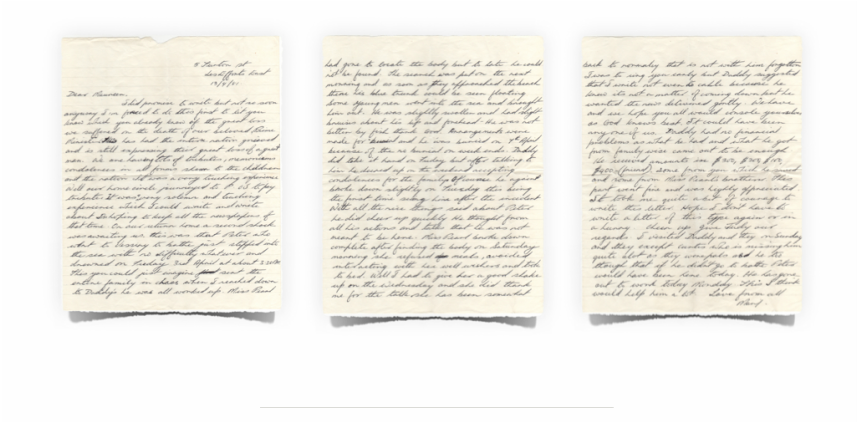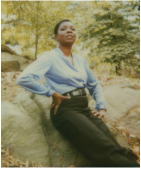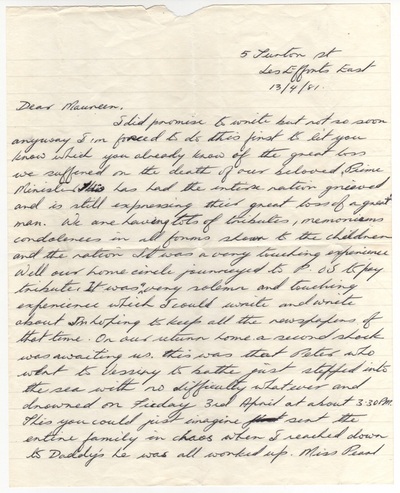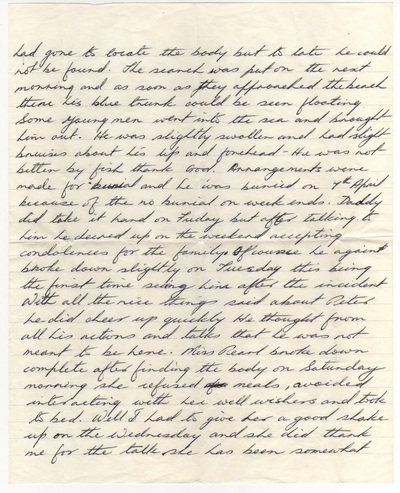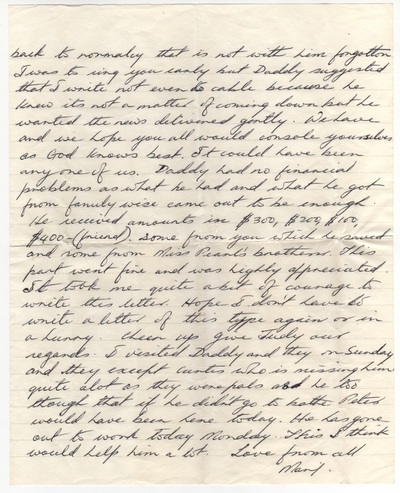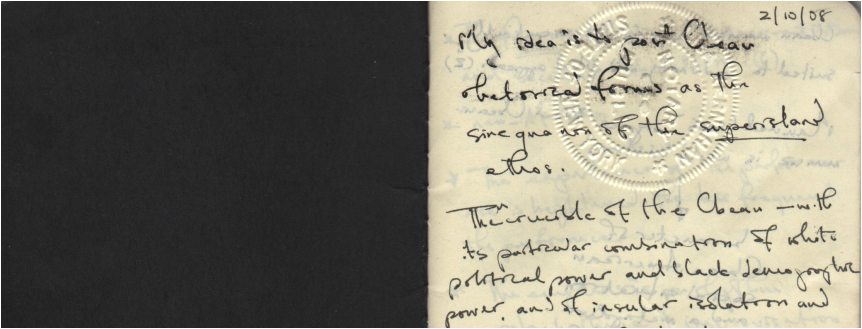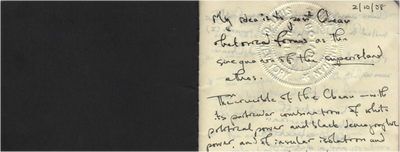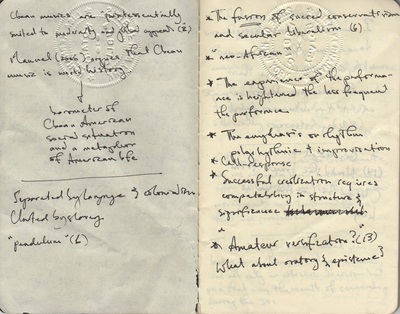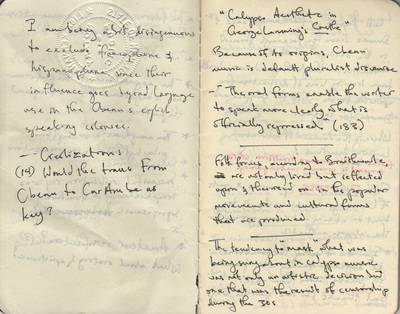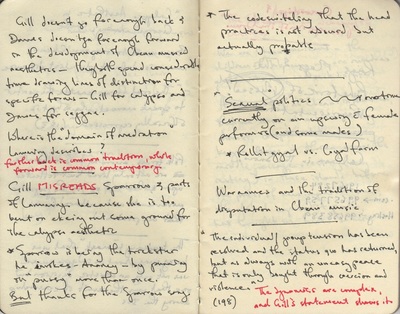@drbrowneDoer of things. ArchivesCategories |
Back to Blog
REGARDING PETER31/1/2015
ith my cousin Jude’s permission, I was able to digitize the archive, publishing it privately on my website. But it is this three page letter from Marjorie to Maureen that has turned out to be something of a codex, with and within which I have sought to make sense of what I mean by vernacular rhetoric. It is also the frame—the rhetorical situation—with which to model my encounters and negotiations with a vernacular archive and the lives they help construct. This is how I enter, by looking for the graves, by stirring up the ashes, reminding myself not to mistake movements of the spirit for serendipity. The study of this and other texts in the archive is precursory in nature, intended to serve as a discursive and material model—a methodological testing ground—for the study of vernacular knowledge, preservation, and distribution. Its urgency is linked to the various functions of the text in its original form. But it also addresses the attachment of other functions in performative and digital contexts. This reflection marks my attempt to situate their relevance in the current moment—and in the other moments that have led to and follow from this one. In my view, therefore, establishing and understanding a connection—even a preliminary one—is key to understanding vernacular discourse in the Caribbean specifically. And, in a more general way, it allows us to examine the role of convention in the author's and audience's participation in public life and their respective contextualization of geopolitical discourse, all of which is multimodally constituted even before being digitized and re-released.
1 Comment
Read More
Back to Blog
IN THEORY: A NOTEBOOK ARCHIVE31/1/2015
Those efforts resulted in my book,Tropic Tendencies .
As expected, I came up with a definition or rhetoric that I thought would sustain me for the years it would take to finish the project: Caribbean rhetoric builds on the sense of the familiar (doxa) in order to underscore shared interests and shared benefits that are probable in a given situation, meanings that have been acquired through experience and cataloged as a living archive of knowledge and expression that can then be activated, revised, and applied for particular consequences. All are based on a fundamental desire to be a part of the world and improve the quality of life while here (Tropic Tendencies, 7). In retrospect, a fairly simple definition. Reflection, we come to learn, is also an invitation to confess certain truths (at least, as you've come to understand them). For me, the confession is that over time, I’ve realized how easy it is to take things for granted–not only of the things I do through habit, but also the more important things. I’ve taken for granted the fact that all the texts I produce have meaning in terms of conception, methodology, and practice. I don’t know why I’ve let that fact slide, especially when knowing, and acting on what is known, is at the heart of my work and of my conception of what we do as vernacular practitioners of everyday life. I want to invite you to revisit the latter parts of the path I took to get to it. The book didn’t just happen–couldn’t just happen. In a way, I'm suggesting that these early articulations–the semi-literate scribblings in four notebooks–ought not be relegated to the nether regions of untapped memory, dry-rotting in the mind like an unkept artifact. Who owns knowledge, really? Are these ideas mine alone? Or, are they yours, as well? @drbrowne |
 RSS Feed
RSS Feed
